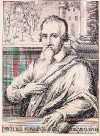 When his views were condemned by theologians of the Reformation as well as those of the Catholic Church, Servetus, a Spanish theologian, assumed a new name and began studying medicine. He became known for his ability in dissection and had unusual success as a physician, even serving—confidentially—the archbishop of Vienne. Arrested for the publication of a religious work, he escaped but was seized again, tried, and burned at the stake. He was the first European to make what medical discovery? Discuss
When his views were condemned by theologians of the Reformation as well as those of the Catholic Church, Servetus, a Spanish theologian, assumed a new name and began studying medicine. He became known for his ability in dissection and had unusual success as a physician, even serving—confidentially—the archbishop of Vienne. Arrested for the publication of a religious work, he escaped but was seized again, tried, and burned at the stake. He was the first European to make what medical discovery? Discuss
Source: The Free Dictionary
 This national holiday commemorates
This national holiday commemorates 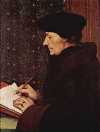 Considered the greatest European scholar of the 16th century, Erasmus was a Dutch priest and leading humanist of the Renaissance era. After his ordination in the early 1490s, Erasmus traveled throughout Europe and became acquainted with many scholars, including Thomas More. A prolific writer, he was noted for his editions of classical works as well as the first Greek edition of the New Testament. Who placed all of Erasmus’s works on a list of prohibited books?
Considered the greatest European scholar of the 16th century, Erasmus was a Dutch priest and leading humanist of the Renaissance era. After his ordination in the early 1490s, Erasmus traveled throughout Europe and became acquainted with many scholars, including Thomas More. A prolific writer, he was noted for his editions of classical works as well as the first Greek edition of the New Testament. Who placed all of Erasmus’s works on a list of prohibited books? 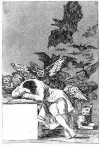 Printmaking is the process of creating an image, called an impression, by inking a prepared plate or woodblock and pressing it against another material. Invented in China in the 5th century, the woodcut was both the earliest printmaking method and the first process that allowed printmakers to produce multiple copies of a text or artwork. Later, techniques involving engraved or etched metal plates were developed. What is the reductionist approach to applying multiple colors to an impression?
Printmaking is the process of creating an image, called an impression, by inking a prepared plate or woodblock and pressing it against another material. Invented in China in the 5th century, the woodcut was both the earliest printmaking method and the first process that allowed printmakers to produce multiple copies of a text or artwork. Later, techniques involving engraved or etched metal plates were developed. What is the reductionist approach to applying multiple colors to an impression? 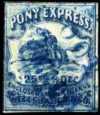 At its inception in 1860, the Pony Express operated between St. Joseph, Missouri—the western end of a telegraph line—and Sacramento, California. Changing horses at stations roughly 10–15 miles (16–24 km) apart, riders carried the mail a distance of 1,800 miles (2,900 km) in about eight days, often traveling through hostile Native American territory. Though it provided an important mail link with the West, it was a financial failure, and the Pony Express announced its closure two days after what?
At its inception in 1860, the Pony Express operated between St. Joseph, Missouri—the western end of a telegraph line—and Sacramento, California. Changing horses at stations roughly 10–15 miles (16–24 km) apart, riders carried the mail a distance of 1,800 miles (2,900 km) in about eight days, often traveling through hostile Native American territory. Though it provided an important mail link with the West, it was a financial failure, and the Pony Express announced its closure two days after what? National Day commemorates the day in 1955 when
National Day commemorates the day in 1955 when 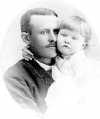 Post was an American breakfast cereal manufacturer. In the 1880s, while being treated by John H. Kellogg at a health sanitarium, he developed an interest in producing healthful foods like those served by Kellogg. In 1891, he established La Vita Inn, an institute for healing by mental suggestion. After experimenting with breakfast foods, he invented Postum, a coffee substitute after which he named his company, Postum Cereal Co., the precursor to General Foods Corp. What cereals did Post invent?
Post was an American breakfast cereal manufacturer. In the 1880s, while being treated by John H. Kellogg at a health sanitarium, he developed an interest in producing healthful foods like those served by Kellogg. In 1891, he established La Vita Inn, an institute for healing by mental suggestion. After experimenting with breakfast foods, he invented Postum, a coffee substitute after which he named his company, Postum Cereal Co., the precursor to General Foods Corp. What cereals did Post invent?